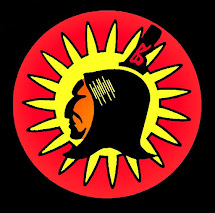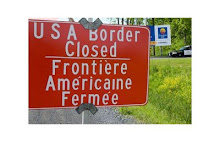Tuesday, April 21, 2009
Attea is Not a Landmark Case Against Indians
When the media treats the Attea as such and when the State rattles it off as if the Supreme Court gave them unfettered access to our trade and commerce is one thing. We expect that kind of nonsense from them. But when our own people and the so-called "Tribal leaders" and their lawyers don't take the time to understand or even read the case, yet will concede to the newspaper's interpretation, it is time to set the record straight.
The Department of Taxation and Finance of New York et al. v. Milhelm Attea and Bros., Inc., et al. went to the US Supreme Court because Attea challenged the States attempt to precollect tax on tobacco products to be sold to Native retailers on one basis; that the Federal Indian Traders License issued to the Attea Bros. by the Bureau of Indian Affairs pre-empts state law. In the lower courts Attea won but the Court of Appeals reversed the ruling. The US Supreme Court held with the Court of Appeals. (see the side bar for a link to the syllabus and opinion)
The important thing here is what was tried. The court had one issue to determine; whether a Federal Indian Traders License pre-empts state law and that is all. To reach its decision the court relied on two cases out west; Moe v. Confederated Salish and Kootenai Tribes of Flathead Reservation and Washington v. The Confederated Tribes of the Colville Reservation. It is obvious but nevertheless important to note that no case was cited involving any of the Six Nations or New York State. In Moe and Colville the courts considered the status of the land, how the title was held, how integrated the Native community was with the non-native community, was the land contiguous or checkerboarded, municipal services, tribal government autonomy and a general assessment of the assimilation of the people and community into the surrounding non-native society. There was little or no mention of treaties, sovereignty or the inherent rights of the Native people to conduct trade or realize any regulatory advantages on their lands. In these cases the courts determined that the states could place a minimum burden on those Native retailers to collect tax for them. As a result of these cases the Supreme Court made an easy determination that if a state (not New York State) could place a minimum burden requiring Native retailers to collect state tax, then clearly the rights of a non-native wholesaler supplying a Native retailer could not pre-empt state law simply by virtue of possesion of a Federal Indian Traders License.
The Attea case did not validate or rule in favor of New York State regarding any conflict with Native people. The court makes specific reference in both the Syllabus and in the footnotes to the opinion to clarify the limited scope of this ruling. It did not consider our sovereignty, our right to self governance and regulation. It did not consider specific limitations placed on New York State in treaties. It did not consider the fact New York State allows anyone to enter the State with up to two cartons of cigarettes without a New York State stamp or tax collected. It did not consider the fact that our land is not held in trust by the Federal government for our use. It did not acknowledge that the US does not own our land and that they vowed never to claim it. It did not consider our history of trade and commerce. Most importantly, it did not rule on any of these things. Attea was in court. He lost his challenge not us.
We have never challenged the right of New York State to tax its people. We simply are not the State's people. We have never conceded our right to conduct commerce to the State. We have never claimed that our non-taxable status extends to non-natives beyond our borders. It is New York State (and most other states) that allow a limited number of products to be used and consumed within the State without taxes applied. Surely the State is not suggesting that person can purchase cigarettes free from the State's tax for use in the State from anywhere on the planet except from a Native retailer on their own sovereign land. That simply would not hold up in court.
Subscribe to:
Post Comments (Atom)













![-[]-[]-/\-[]-[]-](https://blogger.googleusercontent.com/img/b/R29vZ2xl/AVvXsEjLoXmKO8PJVQ5pZ2q7GX7nFKw8H2tb28dxt-o10FUBNtOGszWhWoLB7tgjtMgtISpuSxNW3fcDxfuSS2DqojsdjNJ1lVggyUS374PnzsDbOhk4ukvtTunFQcyfkckZeBzcLbri4LDYN_E/s214/29-03-A-voice-from-the-Akw-.jpg)





2 comments:
Now if only the Seneca businessmen, councilors and lawyers would read and understand this, then maybe they would understand the fight as well.
Thank you for explaining this so thoroughly. How is it that so many can keep building this up as such a major defeat?
Post a Comment